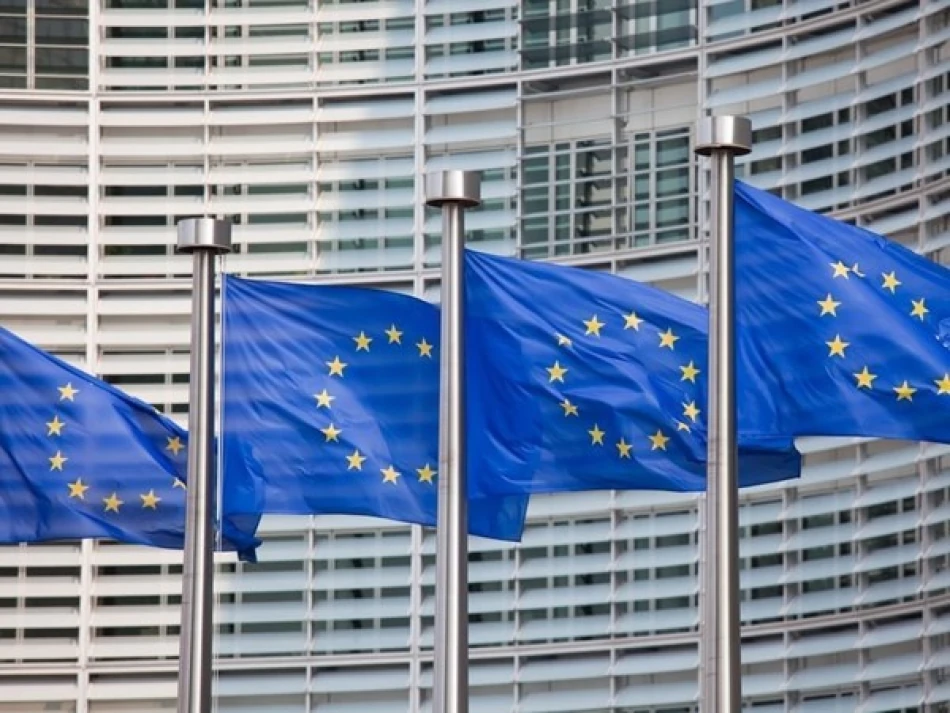
EU Nations Debate Migration Policies at Copenhagen Summit: Navigating the Refugee Crisis
EU Ministers Push for Tougher Migration Controls as Border Crisis Deepens
European Union interior ministers are meeting in Copenhagen today to discuss sweeping changes to the bloc's migration and security policies, with a focus on accelerating deportations of rejected asylum seekers and establishing detention centers outside EU borders. The gathering signals a hardening stance across Europe as governments grapple with sustained migration pressures and rising public concern over border security.
The Copenhagen Agenda: A Shift Toward Enforcement
The ministerial discussions will center on three critical areas: streamlining the return of rejected asylum applicants, combating irregular migration flows, and strengthening measures against organized crime and drug trafficking. German Interior Minister Alexander Dobrindt's participation underscores the importance Berlin places on finding coordinated solutions to what many view as the EU's most persistent policy challenge.
The meeting comes as European governments face mounting pressure to demonstrate control over migration after years of fragmented responses to successive border crises, from the 2015 refugee surge to more recent challenges along the Belarus-Poland frontier and Mediterranean routes.
External Processing Centers: Learning from Australia's Playbook
Perhaps most significantly, ministers will explore establishing deportation centers outside EU territory — a concept that mirrors Australia's controversial offshore processing model. This represents a marked departure from the EU's traditional approach of handling asylum procedures within member state borders.
The proposal reflects growing frustration with low deportation rates across the bloc. Current EU statistics show that fewer than 30% of rejected asylum seekers actually leave European territory, creating a policy credibility gap that has fueled anti-immigration sentiment and strengthened populist parties across the continent.
Frontex Expansion on the Table
Ministers are also expected to discuss granting expanded powers to Frontex, the European Border and Coast Guard Agency. This could include enhanced operational capabilities for deportation flights and increased authority to operate in third countries — moves that would transform Frontex from a coordination body into a more robust enforcement agency.
Political Context: A Europe Under Pressure
The Copenhagen meeting occurs against a backdrop of shifting political dynamics across Europe. Recent electoral gains by immigration-skeptical parties in countries like Germany, Italy, and the Netherlands have pushed migration policy toward more restrictive approaches, even among traditionally liberal governments.
Denmark itself exemplifies this trend. The Social Democratic government has implemented some of Europe's strictest asylum policies, including controversial legislation allowing the transfer of asylum seekers to third countries for processing — though no such arrangements have yet been operationalized.
Implementation Challenges Ahead
While the political momentum for tougher migration controls appears strong, significant obstacles remain. Legal challenges from human rights organizations are virtually guaranteed, particularly regarding external processing centers. The European Court of Human Rights has previously ruled against similar arrangements, creating potential conflicts between national policies and international law.
Diplomatic hurdles also loom large. Identifying third countries willing to host EU deportation facilities will require complex negotiations and likely substantial financial incentives — arrangements that could prove costly and politically sensitive.
What This Means for Europe's Future
The Copenhagen discussions represent more than technical policy adjustments; they signal a fundamental recalibration of European values around migration and border control. Success in implementing these measures could provide a template for managing future migration pressures, while failure might deepen existing divisions between EU member states.
For European leaders, the stakes extend beyond migration policy itself. Their ability to demonstrate effective governance on this issue may well determine electoral outcomes and shape the EU's political trajectory for years to come. The question is no longer whether Europe will adopt stricter migration controls, but how far it's willing to go in abandoning previous humanitarian commitments to achieve them.
Most Viewed News

 Layla Al Mansoori
Layla Al Mansoori






